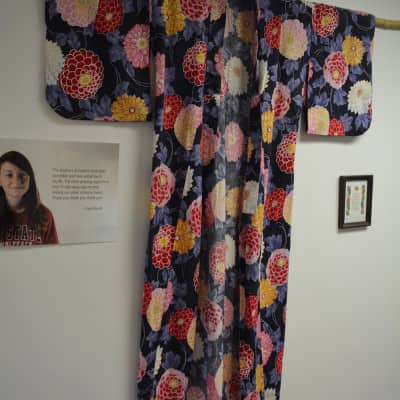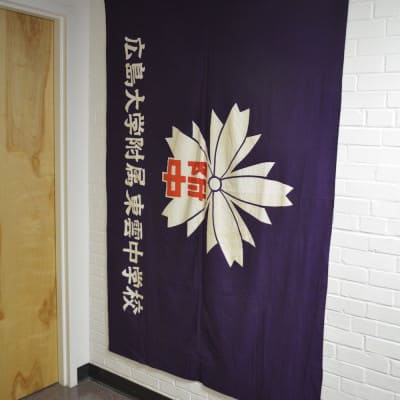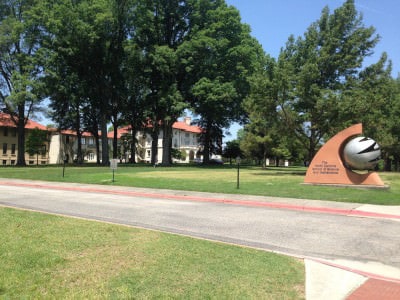
Exploris Middle School, which opened in downtown Raleigh in 1997, was one of the first 100 charter schools in North Carolina.
They are also the only school to have been awarded “model status” as a STEM School of Distinction by the NC State Board of Education. This means they exceeded meeting the attributes in the NC STEM School Implementation Rubric, which is based on the NC Department of Public Instruction’s 10 STEM attributes for a high-quality STEM school.
But this school doesn’t look like many “typical” STEM schools.
What stands out about Exploris is that it’s not all that high-tech. You won’t see laptops or tablets in the hands of every student. In fact, the school only provided teachers with their own laptops in the 2014-15 school year. Classes are able to borrow from the school’s supply of 72 Chromebooks, a handful of iPads, and a set of laptops. There are desktop computers around the periphery of several classrooms, but not all of them.

Instead, the students’ heads are up, and they are striking out into the real world. There are no textbooks either. Summer Clayton, the executive director of Exploris, says:
“The outside world is our textbook. The local community is our primary source.”
It’s not all that unusual to see an empty classroom during the day.
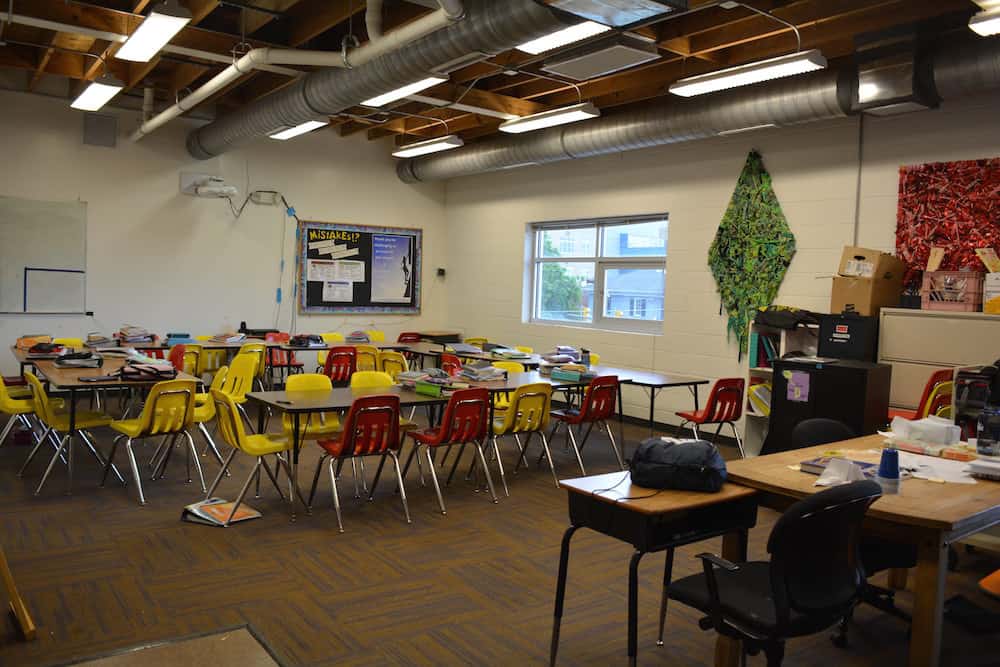
Instead of sitting inside, the 7th graders from this class took advantage of the break in rain and went outside to apply their math skills to build garden boxes for their urban garden.
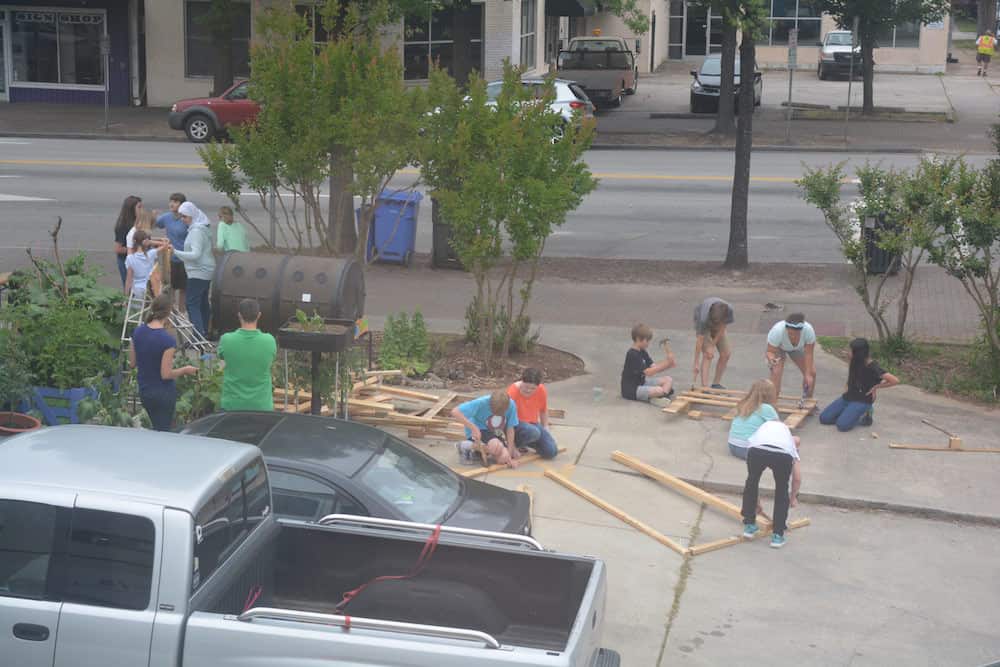
Exploris likes to think of itself as a Strategies That Engage Minds (STEM) school. It’s not that they don’t focus on science, technology, engineering, and mathematics (STEM) in their curriculum — they do. But the focus isn’t narrow. Each trimester, the teachers teach a thematic unit based on a current issue that integrates STEM subjects with social studies, language arts, and visual arts.
But their social curriculum is just as important and they confidently stick to their core values. Through these core values, the students become empowered and engaged with their education in a very unique way. They are certainly ready to go out into the 21st century world.
Mission of Exploris
Exploris is a learning community that engages students in a rigorous, relevant, relationship-based education. This is done through experiential, project-based learning that empowers students to build a connected, just and sustainable world.
Engagement
Students Peyton and Henry gave me a tour of the school, pointing out the core values along the way. The first they spoke about was “engagement.” From what I saw, all of the core values contribute to the students’ engagement with learning.
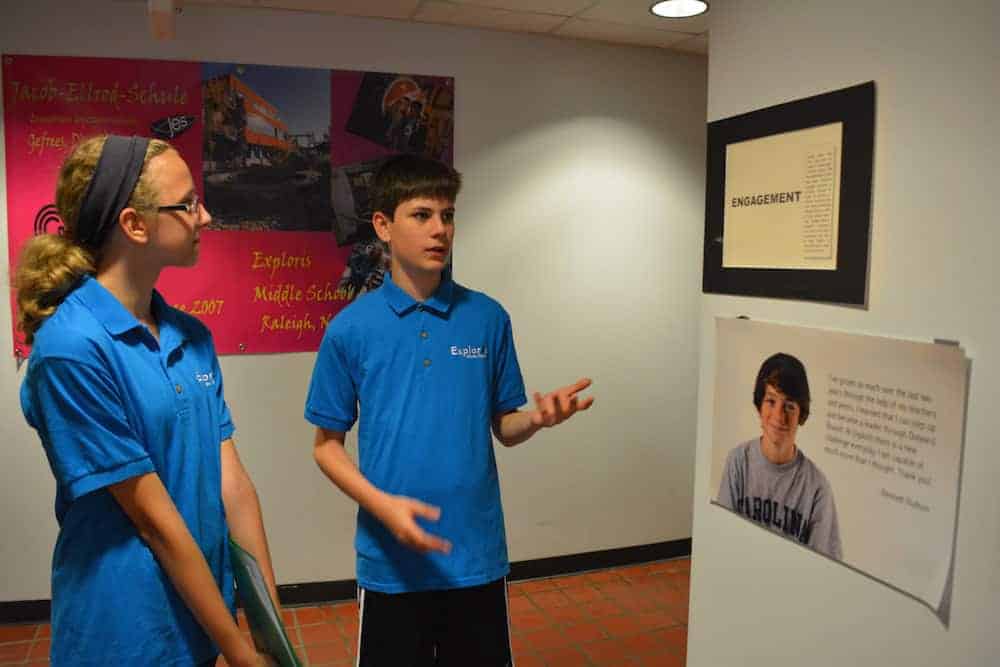
Sonja McKay, a 7th grade teacher who is a 2010 Kenan Fellow and a 2013 recipient of the Career Award for Science and Mathematics Teachers from the Burroughs Wellcome Fund, said that she finds the small school atmosphere of Exploris to be empowering.
“Teachers are empowered to be creative.”
Although teaching can be exhausting, “teachers are spent in a creative way,” which is rewarding and makes the environment that much more engaging for teachers.
Relationships
There are four teachers per grade and each student is assigned what is called a crew teacher. This crew teacher acts as their guide and mentor throughout the year. The students call their crew teachers by their first names in order to strengthen their bond. In their crew journals, which are shared only with their crew teacher, students reflect on what’s happening in their lives. The crew teachers choose a quote each week that the students are asked to reflect on and write about what it means to them. Sometimes the crew journals become vessels for conversations between teacher and student.
Trust is important in the school — trust between students and students, as well as trust between students and teachers. There are no lockers. Backpacks are hung on hooks throughout the hallways. Notebooks and class materials are kept in cubes in the classrooms.
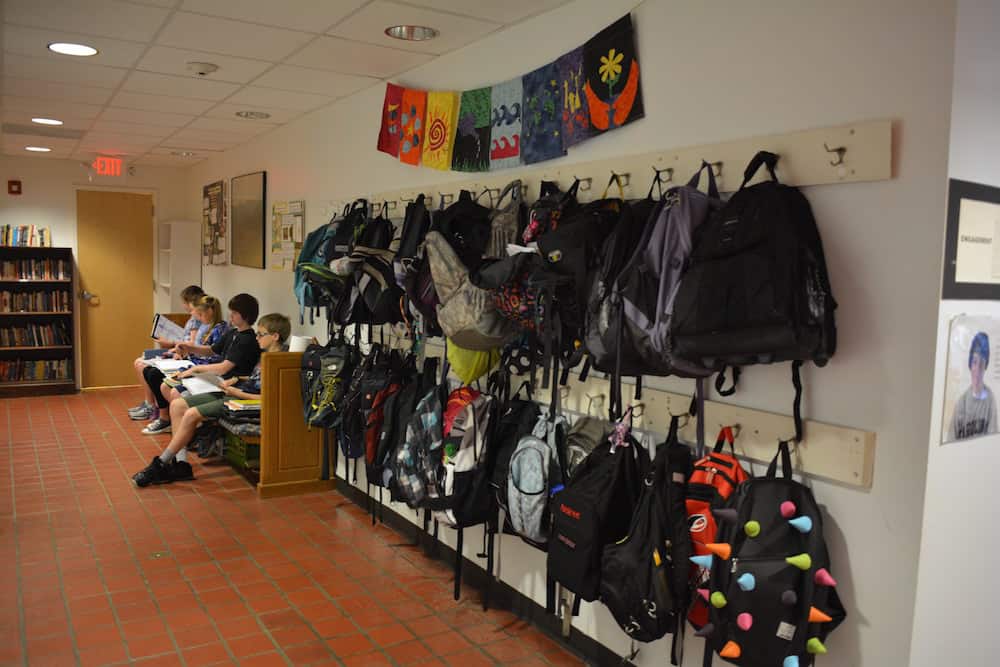
Curiosity
Students are encouraged to ask questions and to research topics that interest them. Henry told me they are encouraged to ask “why” just “like little kids.”
Students are also expected to explore subjects that interest them. They have the opportunity to choose an elective to participate in each year. Here is a project from a group of students who took a duct tape elective.

Balance
Student wellness is encouraged and emotional well-being and mental health is emphasized just as much as physical health. There is a small gym in the basement of the school with a labyrinth outlined on the floor in tape.
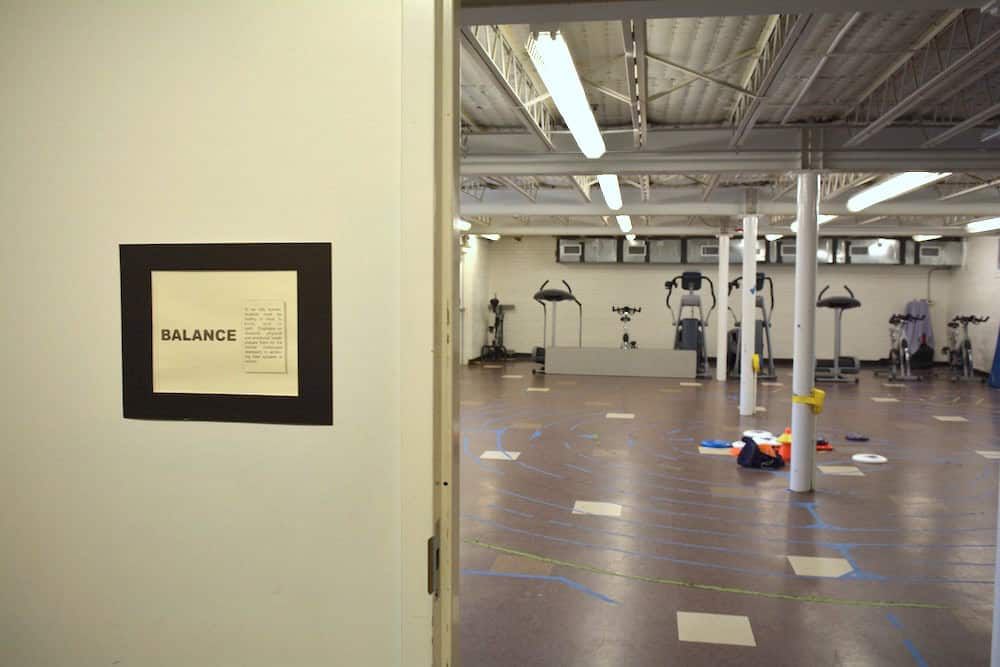
Most of the time, students explore parks in downtown Raleigh for P.E. They run around in nearby Nash Square or go to Pullen Park to swim, do yoga, or play frisbee and capture the flag. On the days when it’s not ideal to go outside, this gym is ready and waiting.
Social empowerment
The school building at Exploris is really a “base camp.” Sixth grade teacher Shannon Hardy says this is where students get their skills and ideas together and do research. But then they go out and apply what they have learned in the community.
Two hours per week are devoted to service learning. Exploris lives by the mantra:
“Think globally, act locally”
In the 2014-15 school year, the 7th graders focused on the issue of food access and food deserts. As part of this thematic unit, they decided to build a school garden on the corner of their urban school block.
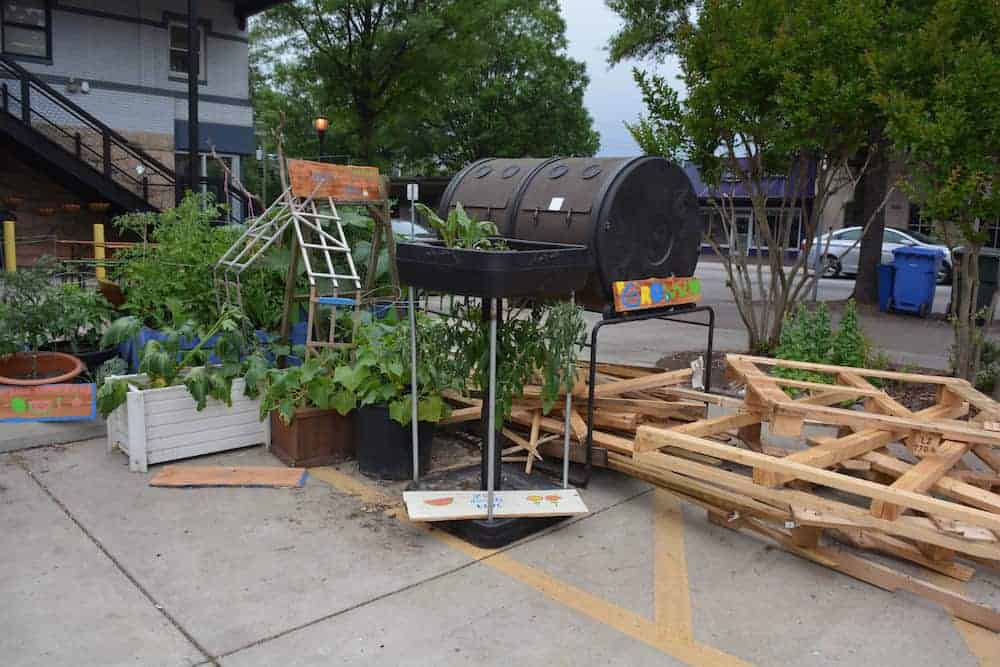
The food from the crops was donated to the local Plant a Row for the Hungry program, which distributes fresh produce to food pantries, shelters, and other hunger-relief organizations.
Collaboration
Exploris has partnerships with two schools to provide cultural exchange programs. The exchange program with the Jacob Ellrod Schule in GeFrees, Germany began in 2006. Every two years, students have the ability to host German exchange students and visit GeFrees.
The cultural exchange program with Shinonome Junior High School in Hiroshima, Japan began in 2000 and has shaped much of the school. Each year, students from Shinonome travel to Raleigh in the fall and a delegation from Exploris goes to Hiroshima in the spring. Throughout the school are beautiful pieces of artwork from Japan, including this yukata and noren:
In Japan, the schools are not cleaned by janitors; instead the students take responsibility for keeping their environment clean and spend time each day doing chores around the school. Exploris has taken this approach and has a time called Blitz after lunch each day when they work together to clean up their classrooms.

Innovation
Exploris encourages creativity for both teachers and students. Exploris uses the Common Core Standards for English Language Arts and Math and the NC Essential Standards as a foundation for science and social studies. Teachers have the freedom to teach these standards in the ways that they feel best engage the students in real-world problem solving. Students are also encouraged to find inspiration in their learning by interweaving their passions into the topics they are covering.
Just like many classes, the art class often goes out into the community. When the Miró exhibit was on display at the Nasher Museum of Art at Duke University, students visited the museum and then worked together to create their own surrealist art inspired by the Spanish artist.
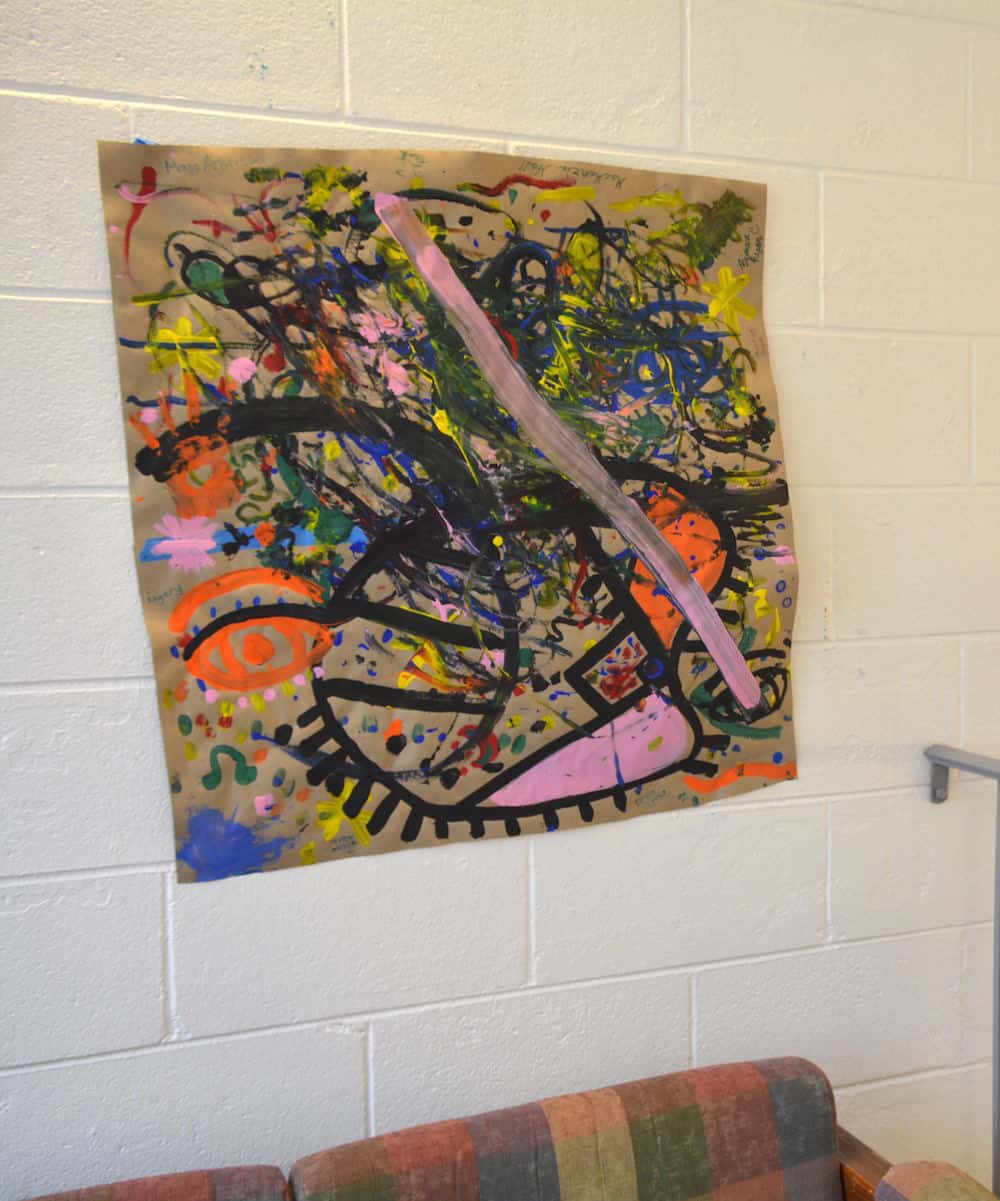
Craftsmanship
Teachers emphasize attention to detail in the students work. Students come to know that if they put the effort into their work, take their time and don’t rush, they will end up with a good result. There is value in caring about the work you produce.
In this class project, 8th graders chose a freedom rights activist and had to draw a portrait of them, including quotes. Students were encouraged to take their time and many of them are proud of the results, even the ones who did not previously consider themselves artists.
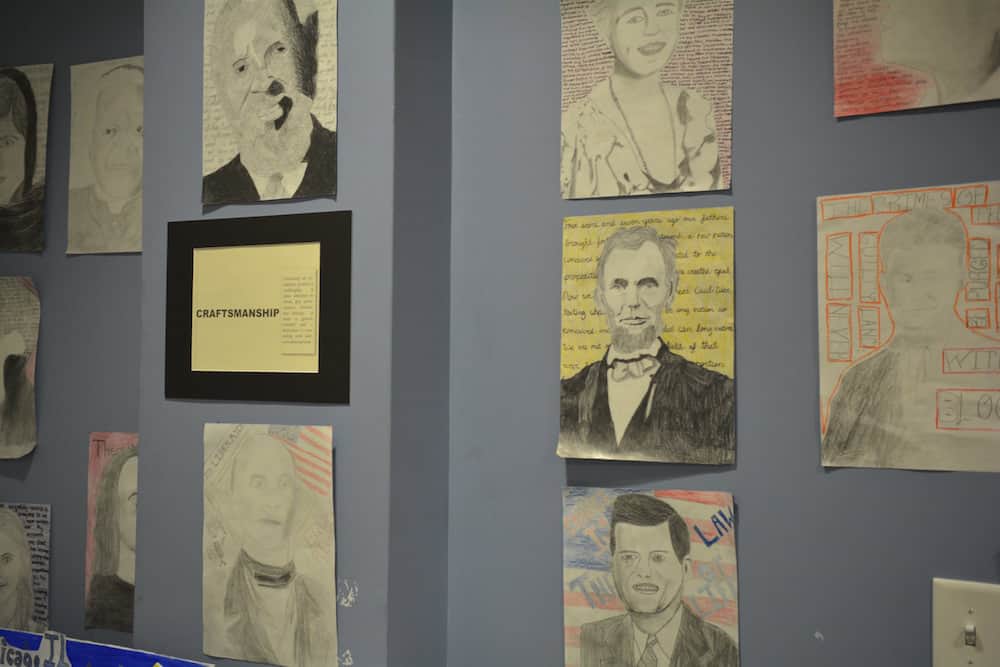
Exploris does not award the standard A-B-C grades. Instead, they grade based on growth — Beginning, Developing, Accomplished, and Exemplary. A struggling student may not do well on an exam, but they have been given many opportunities to show mastery or “accomplishment” of the content in different ways. Effort and work habits are also assessed, albeit separately.
As Peyton, one of the student ambassadors, said:
“It’s about how you grow, not about how you do compared to your classmates.”
Connection with nature
Every year, 8th graders participate in a capstone wilderness experience through North Carolina Outward Bound. They trek into nature for five days, during which they reflect on their middle school experience, as well as who they are and what role they play in shaping the environment.
Since 2007, 6th graders in Kenan Fellow Juliana Thomas’ class have been tracking Eastern Box turtles around Lake Raleigh. The project, named “Where’s Waldo?” after a turtle named Waldo, tracks turtles with GPS to learn more about the turtles behavior and collect research to determine if and why the population may be decreasing.
In February 2013, the students presented their research at the North Carolina GIS Conference.
In January 2015, the students published an article about the research in Wildlife Magazine.
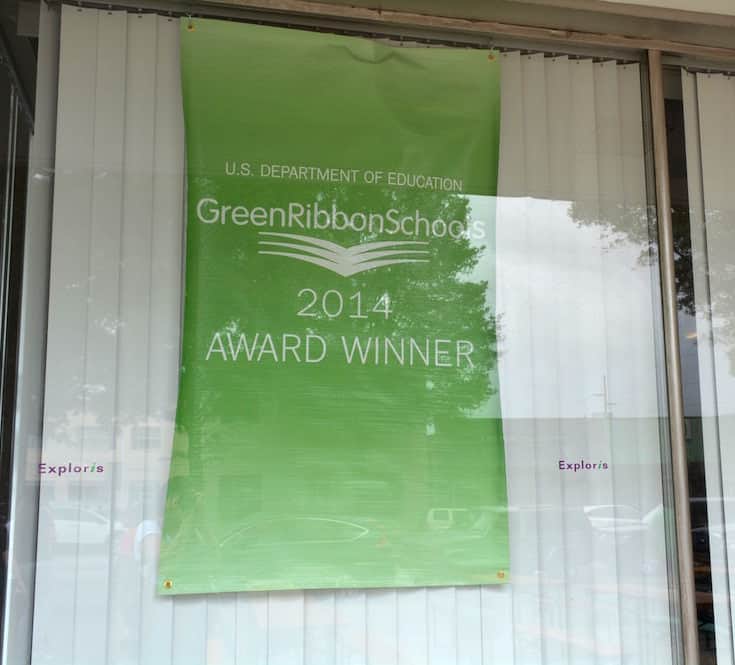
Exploris is also the proud recipient of a U.S. Department of Education’s Green Ribbon Schools Award. They are one of only five schools in North Carolina to have received the award, and the only school in the state to be both a GreenSTEM school and a N.C. STEM School of Distinction. Shannon Hardy explains:
“GreenSTEM is about evaluating STEM work through a core set of a values and connection to nature.”
The students helped gather data about the school facility’s footprint — runoff, water and electricity consumption, sources of energy — to include in the application. Below is a presentation by Shannon Hardy from the 2015 Scaling STEM conference about how Exploris’ process of applying for the award “revealed real-world STEM problems that could then be ‘solved’ through student engagement.”
Reflection
Students create portfolios of their work and progress throughout the school year two times per year. They focus on their growth and reflect on how they have improved. These are presented to their parents and teachers.
Eighth graders make an additional “passage portfolio” at the end of their final year. This one includes an assessment of their growth and how they are prepared to continue on to high school. The students present their passage portfolio to their parents, teachers, the principal, and key community members they have been involved with during their time at Exploris.
The future of Exploris
Exploris Middle School has been such a success that the board and administrators wanted to open the opportunity to more students. They decided to expand the school to include K-5 and 2014-15 was the first school year as a K-8 school. For now, the elementary school is located on a separate campus east of downtown Raleigh in two large modular buildings on an 8 acre block.
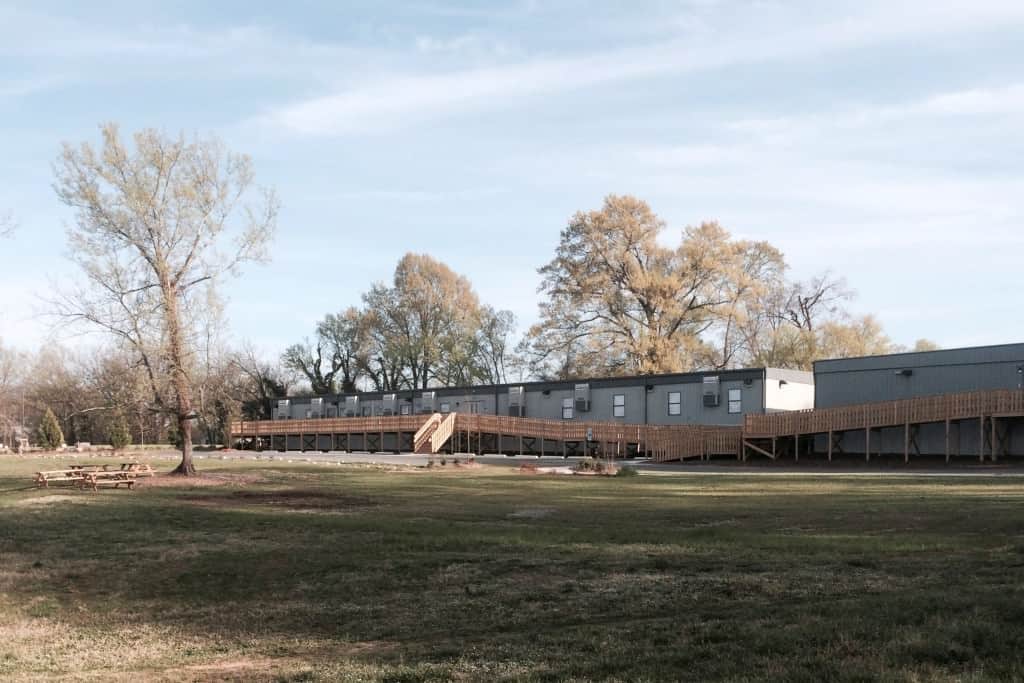
Even with this expansion, the school is still very small. The middle school has 204 students and the elementary school has 208. As a testament to their success, the lottery for admission to the 2015-16 school year had over 1,300 applicants — for only 72 seats total in Kindergarten, 4th, and 6th grades.
Exploris is continuing to look at more ways to engage their students and positively affect the community. And they want to find a location in downtown Raleigh where they have room to grow. In the mean time, they will continue to use the real world as a lens for studies since that model is working so well to engage students’ minds. As Summer Clayton told me:
“We simply want learning to come alive.”


